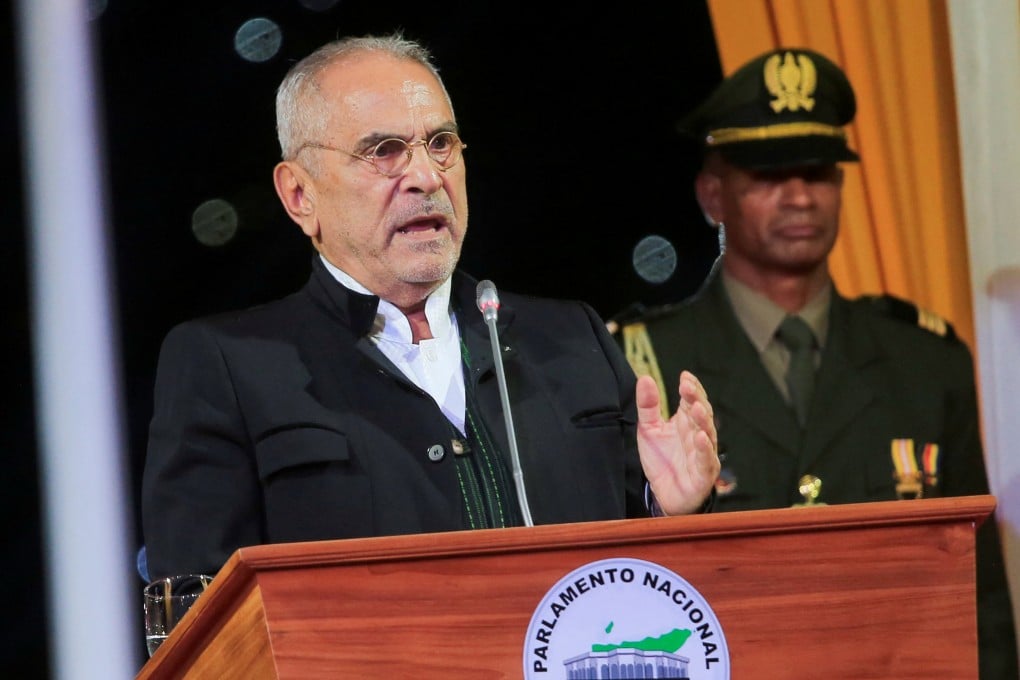US-China relations: East Timor isn’t ‘taking sides’ but it wants Beijing’s help, says president
- Independence hero Jose Ramos-Horta has his sights set on expanding cooperation with China via the ‘extraordinary vision’ of the Belt and Road Initiative
- The 72-year-old hero maintains his country won’t get involved in any US-China rivalry, but analysts say it’s going to be a tough balancing act to pull off

The 72-year-old Nobel laureate – an independence hero in one of the world’s newest nations – told This Week In Asia that the aim was to maintain an equal distance from all major powers, while still keeping the door open to trade and investment.
“What we want is the best for our own national interests. In my case, I will make decisions that are in the best interests of the people of Timor Leste,” Ramos-Horta said, using the country’s official name. “We welcome strong ties with all, the US, China, Australia, Indonesia and … [other] Asean countries, we are not going to say we are taking anyone’s side.”

Speaking via telephone from Dili, East Timor’s capital, Ramos-Horta said he would do his best to keep his country out of the headlines, amid an escalating battle for influence in the region.
“We are not saying one country or one side is more important than the other. We want good ties with our neighbours. Asean countries, Japan, South Korea, Australia, New Zealand,” he said. “They are all important to us.”